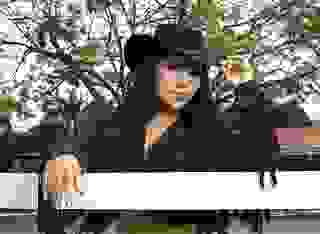Note: You can change font size, font face, and turn on dark mode by clicking the "A" icon tab in the Story Info Box.
You can temporarily switch back to a Classic Literotica® experience during our ongoing public Beta testing. Please consider leaving feedback on issues you experience or suggest improvements.
Click here"I have to sit," she said, Jonas thought weakly.
It was quiet and Jonas wondered if he'd lost the connection, but then he remembered Trish Finch and her nature. He knew why he heard nothing from her. Empathy (real empathy, not imagination) in the face of devastation was not a hindrance, but neither was it the sole object. What mattered was how the historian handled it.
"I'm sorry, Jonas. I'm shaking," she said softly after a minute. "They were right under my feet. I stepped on their rifles."
Jonas nodded. "You actually touched them." He could feel her mood changing as she realized the magnitude of her success, and the magnitude of their loss.
"I may need some time, Jonas. I think of them there under those rifles, waiting for the attack they never made. It must have been one horrific moment. To this day, there, frozen in that horrible moment. Their names. Billy knew where each would be. I... "
Dr. Simms was silent. "Remember we talked about empathy, and that guy who transferred to sociology... What was his name? Jeffers? I was worried he'd try to date you. Do you remember what I said?
She thought, tore her mind away from the horror of her discovery, and tried to think of a seminar two years earlier.
"Yes, you said something like, history saves the meaning of our lives."
Their discussion was serious and distant, each hearing the phone buzz in the background.
She volunteered the next, "You think we study history because the people matter, even after a hundred years."
"Yes. Every one. You see them as people, not names on a list, now. The years don't really matter. You've uncovered the demise of 43 men. You're the first to understand the very incident that ended their lives."
"If only their families had known..."
He heard her breathing, but she didn't speak more. More time slipped by. "They will now, late but resolved. It was a long time ago, Trish. But you know now that doesn't really matter."
"Yeah," he heard her say quietly. "Uh, Jonas?"
"Yeah?"
"Is Emily there?"
"Yes. Would you like to speak with her?"
"Please." She heard him calling to Emily, perhaps explaining, and then Emily was on. They spoke for a long time.
*
"Jonas! How are you? Emily? And how's our girl in Gaul?" said Tom Marx. They spoke by telephone the day after Trish notified Jonas she'd found the platoon.
"Everyone's doing well, here, Tom. Emily's expecting, finally."
"Really? I'll buy some expensive cider and we'll share a drink next we're together."
"Yeah, Tom, reason I called. Trish's found out what happened, and she's pretty sure she's found the remains." He explained what Trish found.
Tom whistled when Jonas finished.
"My God. My God." Tom was actually speechless, even though a lawyer. Dr. Simms waited, knowing Tom's mind was always working on the next step.
"Jonas, what if we... " and they talked for an hour about possibilities.
"May I tell Miss Finch what we want to do?" Dr. Simms asked.
"By all means. With her, we could have wine." Marx laughed.
Immediately upon hanging up, Simms dialed his student in Rochambeau, France.
"Bonjour?" she said.
"Très bien, merci, a vous? You're really getting into this French culture thing, aren't you, Miss Finch?" Simms asked, with a smile.
"I am. Thank you."
"I spoke with General Marx. He thinks this is big news. If your French friends are amenable, he has an idea about the last resting place of the Lost Platoon. We'll need the support of the French government, but since it's an undeveloped area anyway, and the agreement of the families... " He spoke to her then for a half an hour, explaining the idea, the practicality, the way it might happen as he understood it.
Trish sat down as they talked. She'd controlled herself enough. It was overwhelming. She was working on a history degree, and this came of it. She'd have to talk to Jacques and his father.
Late that evening, she sent an email to Evelyn Jones Bradley, west of St. Louis. "I know Clara is passed, but I wanted you to know: we found the Lost Platoon."
CHAPTER 8: MOM AND LOVE
"For the first time, Ryan, I think my profession is more important than yours."
He thought about that a lot, over most of a few years. History more important? It didn't make sense, but he knew she was reasonable in her own mind. He wanted to dismiss it as an academic prejudice, but it was so out of her character to be that. His mother eventually explained it to him.
Mrs. Armbruster watched her son. He was in his second year of residency in Salt Lake, but he'd lost something. His first joy at being in the Rockies again didn't seem to make him happy now. He was moody and quiet. He visited Denver over the Christmas holidays, but she wondered why. He loved seeing his sister and her family, but it was her family, not anything he'd built. They were actually two hours closer to Salt Lake City, but Ryan only visited there twice because she had a life with her husband and children. He had friends, and dated some, but nothing seemed serious but his mood. Mrs. Armbruster thought Ryan may have misunderstood something.
He'd broken up with Patricia, the Ohio girl she'd never met but for whom he'd had such high hopes.
It had been a year and a half of his residency. She thought that was long enough to mope. It was unlike him. She knew he had a capacity to care; it had led him to a career in medicine. But in all that talk about keeping distance from patient and avoiding entanglement, he'd confused something, she was sure. She wondered about Patricia Finch.
"Ryan, sit with me," she said. He knew she wanted to talk. He sat beside her on the couch. After a few seconds, she said, "Tell me about Trish."
He looked away. "There's nothing to say, Ma. I thought I was in love with her, but I don't think she loved me. She was fun and athletic and smart. I told you she was working on a Phd in history. We were starting to talk about getting married, but then she decided she didn't love me."
Mrs. Armbruster didn't think her son was a liar, but for some reason that answer sounded like a canard. She nodded and held his hand.
"Why'd you take the job at Salt Lake?" she asked. "I mean, you and she were still together yet you came west for residency."
"Yeah, I applied around out here. I wanted to be near the family, in the mountains. You know how it is out here. And with Salt Lake and Denver you have so many shows and sports. Skiing."
His mother listened. "Out here? What did she want? Did you break up with her because you wanted to ski?" She didn't believe that, and she wanted him to get angry instead of talking as if it were fate. She didn't believe in fate until people made it.
"No, that's silly. You want to know why we broke up? Is that what this is about?"
She nodded. "I do, but not just because I'm nosy. I remember how wonderfully you described her on the phone and when you came for visits. What happened?"
Ryan looked nowhere. He looked somewhere out there.
"She was about to start her dissertation, the last step in her degree," he said, "She was going to have to visit France, she was studying some boys who were sent to World War I from her hometown, Sky Grey. Did I mention that town? (His mother nodded.) She wanted to talk about arranging her trip, so we could be together, maybe get married. I told her I accepted the residency in Salt Lake City and..." He felt his mother look suddenly at him, and stiffen.
His mother slapped his leg, probably as hard as she was able. He looked at her. "Hey!" It stung for some seconds. She was mad.
"She wanted to talk about arranging her big trip, maybe with you, and you told her you had already accepted the position out here?" she asked.
"Yeah," Ryan said. "So?"
She got up and said, "Just stay there and think for a minute. I'll be back."
She came back a few minutes later with a beer and a newspaper folded up. She handed the beer to him. Before she sat down, he started up again.
He defended himself, saying, "She has to accept that my career is important. Lives matter. I'm a surgeon, mine has got to take precedence. Any girl I marry has to realize that. Even Dr. Patricia Finch."
His mother nodded. "You think she was saying that if you got a call to come to a bleeding patient, she'd say, but we're having supper?" she asked.
He smiled. "No, nothing like that. But Salt Lake was an opportunity, a great one."
"Oh honey," his mother said.
"She said that I should not have made that decision without talking to her first, and then she broke up with me," he said. He felt like crying, but instead he leaned his head on her shoulder.
Moms are great.
His mother smiled. "She wasn't saying your career wasn't important. She was saying that her life had to be important to you, too."
He was quiet for a moment. She opened the Denver Times to the front page.
"Is this she?" his mother said, pointing to a picture on a story below the fold about a new American cemetery being built on an old French battlefield. "Lost Platoon To Rest in France," the headline read. Ryan looked carefully. It showed unseen exhumations being supervised by Dr. Patricia Finch of the American monuments commission. Trish looked beautiful and smart and capable.
Ryan nodded and read the article. He finished and put his head against her shoulder again.
"I told her my career was more important. That I save lives," he said.
His mother resisted the urge to hit his leg again. "And what does she save?" she said. She thought to herself, I sure would like to meet this girl. She was pretty, and her statements in the story were intelligent.
He was quiet, thinking. She saves their moment, he realized.
Ryan nodded with his cheek against her shoulder.
"Ma," he said quietly and slowly, "when did I become arrogant?"
She didn't answer directly. "You get it from your father, honey."
"I like seeing sis and her kids, and you and dad, but it's not like it was," he said.
"The past is always with us, but it never comes back," she said. "You had a great childhood, but it's over. Remembering is as good as it gets. Oh, and creating those memories for others, that's pretty great, too."
Ryan spoke. "I was a fool."
"Again, your father," she said, and they smiled.
It was quiet for a few minutes. They heard his father pulling into the garage. Soon everyone would be coming over for supper. He thought, everyone but one.
"Is she involved with anyone?" his mother asked.
Ryan shrugged. He avoided asking Jackson, not wanting to seem obsessed almost two years later. "I don't know. She's pretty, she probably has a boyfriend. Maybe a husband."
"Can you find out?" his mother asked.
"I can email Jackson. A friend of hers and mine in Ohio. I think I'll do that." He kissed his mother on the cheek and said, "Thanks, Ma."
"What's for supper?" his father asked, seeing them in the living room sitting side by side.
Ryan answered, "Crow."
Mrs. Armbruster slapped his thigh again, much more lightly, and laughed.
His father smiled. "Must be Tuesday."
*
Ryan emailed Jackson.
"Ah, the idiot finally coming to his senses? Yeah, she has me, and that Simms guy, and now some Marine general who's a confirmed bachelor. Any one of us would go for her. I'll tell her you asked."
Ryan smiled at the joke. Dr. Simms's wife was Trish's friend, Ryan knew the general from Trish's talk and she was much too young for him (he hoped), and Jackson played the field for a different team. None of that really mattered. Ryan loved Trish, and just the idea made him feel better.
It mattered. Love was actually something. It may not save a life, but it gave it meaning.
CHAPTER 9: THE AMERICAN CEMETERY AT LAFAYETTE DU BOIS
An American Army Band played marches as people arrived, strolling up the length of the spur. There was pavement, so a few old or infirm were pushed in wheelchairs. There were hundreds, perhaps a thousand, standing about the grass lawn of the lower ridge on the northeast side of the Moreau farm. Many were seated in white, folding chairs in ranks before a portable podium with a lectern. They included at least one representative of every family of a member of the Sky Grey platoon, paid for courtesy of a charity organized for the purpose by the Veterans of Foreign Wars.
Many other family members paid their own way, using the opportunity to visit Europe. Some were interested in the history of World War I, some were French or American government officials. There were French people from Rochambeau, who'd wondered at the mystery of the ridge as children. Other Frenchmen were there out of simple interest or decency. An Ohio congressman made the trip, as well an Indiana senator. The mayor of Sky Grey and her family were there. A German government official was present, also, gregarious and introducing his family. An American platoon was drawn up in ranks to the left of the podium, currently at parade rest. A French honor guard faced the audience to the right. An American honor guard was at parade rest to the left.
There were flags.
It was breezy on Crête Folle. The American flag, flying on a pole at the far end of the ridge, snapped noisily in the wind when the band was quiet. A French flag flew beside it. The larger trees were saved, trimmed, cleaned up. The bracken was cleared, vines and thorns removed or cut back. The uneven ground had been carefully smoothed, replenished, and sodded, but not levelled. Unlike most military cemeteries, the ground undulated from grave to grave, from squad to squad. To the right were two very large craters, fifty yards apart, and numerous smaller. All had drainage.
There was a small parking lot behind a copse at the southwest rise of the hill, hardly visible in the summer foliage; perhaps the only problem with the site was that it required a steady uphill walk. There were several American army officers. People straggled up from the parking lot until there were too many to be a straggle; most wore casual clothes, but not their worst. Women were in summer dresses, men in pullover shirts, a few in sport coats. The wind blew the dresses and a few hats had to be pinned on.
Finally, the band played the French and American national anthems and people sat in chairs or stood about quietly. A French government official spoke first over a temporary loudspeaker system, of tragedy commitment leading to the close relationship of the American and French people. A retired US Army general and now head of the American Battlefield Monuments Commission spoke. "We are so happy that all the families agreed to leave their loved one in situ," he said at one point. "We think it is appropriate, in this extraordinary circumstance. Each remains was exhumed, ammunition and ordnance removed, and replaced but prone. Resting. When possible, identities were checked, based on the only known document and identity tags when present. Each remains was treated with the utmost respect." He paused.
He introduced the next speaker. "Ladies and Gentlemen, the historian who finally and correctly discovered the ultimate resting place of the Lost Platoon of the American Expeditionary Force, Dr. Patricia Finch."
Trish left the group she was sitting with—Tom Marx in full dress uniform, Jonas and Emily Simms with an 18 month old child, Jacques Moreau, and his father, now 101 and very frail, her own father, mother, and surviving grandmother, the Moreau children Jean and Cheri with their father—and stepped onto the platform. She stepped up to the microphone and did not refer to her notes.
She saw some she knew from her interviews. She nodded to Evelyn Bradley and made eye contact with one or two others. She looked out then on so many people, but one made her hesitate. She stared at the young man just behind the chairs in a suit. He was smiling. She was startled, but when he gave a little wave, she smiled and nodded.
Ryan.
She spoke in French, and translated each paragraph immediately into English, so her brief words took longer.
"Good morning. It was called the Lost Platoon of Sky Grey, the Lost Platoon of Ohio, the Lost American Platoon of the AEF or the Great War. After some time, no one called it by its actual designation," she started, smiling, "which I admit is a mouthful. It was actually the Third Platoon, Company C, First Battalion, 156th Regiment, Second Brigade, Fortieth Division, United States Army, American Expeditionary Force. As you walk up the slope behind me, in just a few minutes, you'll notice that every man but one remains where he deceased." She hesitated a moment and went on. "They rest where they were buried in a stupendous bombardment that boiled the land behind me, even under us, collapsing their trench and interring them as they sat on their firing step prepared to attack. You can see the shell holes of that great barrage.
"For them, combat was a few terrible seconds. These sons of western Ohio and eastern Indiana are still here, and always will be now.
"Their families were left wanting. They hoped for decades that somehow, someway, their platoon had survived, that someone had survived. Their moms looked up every time a doorbell rang for the next fifty years, hoping, hoping it was Andy or Paul or Charlie finally come home. I read one letter written in the 1950s by the sister of Andy Guardino, saying that she still thought, still hoped, he might walk in the back door some day, like he'd never left. She saw him as that 18-year-old kid brother who marched off to the tune of George M. Cohan. We know where Andy is now. He is under the 12th stone you will pass. They are all here. Together.
"My great uncle is the forty-third American soldier. He is buried just beyond the others, out of line, beside a rock now with a plaque identifying him, near the flagpole. He survived the bombardment that morning, but he wouldn't leave his men. I think their loss disturbed him. He lived out the last 13 years of his life on this little ridge, obsessed with a promise he made: to leave no man behind. He called this forest Lafayette Woods, and for those years he watched this ridge, watched the bayonets rust. When he saw kids playing here, he collected those bayonets and saved them; they were found with his body. He lived here begging for scraps, freezing in winter, until he could accompany them in death. He chose it. The people here called him the madman; children called this narrow spur Madman Ridge. Mr. Moreau, to my left, actually met him once, as a young boy, on this ridge."
She shook her head, smiling a sad smile. She avoided more maudlin statement.
"There is a famous epitaph recorded in Herodotus about the dedication of soldiers lost in battle far from home. It's read in most schools, in one curriculum or another. It translates,
'Go tell the Spartans, Passerby,
That here, obedient to their word, we lie.'"
She stopped and looked around and then back at the crowd.
"We are the passers-by for these our dead of the Great War. It's up to us to remember them, and tell."
She waited a long pause. Ryan had his hands behind him, looking straight at her.
"One last thing. Since the decision to maintain the combat graves of our soldiers, it was decided that next year, from June 23 and for each of the next 42 days, a different flag will be flown at the Tomb of the Unknown Soldier in Arlington National Cemetery, to be presented to a family member of each of our lost soldiers, no longer unknown, by rank from lowest to highest in ceremony. Further information will be sent you, so check your email when you see my name.
"Thank you all for coming. The entire area and whole farm have been searched by radar and sonar for unexploded ordnance; but use caution. As you passed up from the lot, you must have noticed the marker for Amie Moreau Durand, who died on that spot just six years ago from a hand grenade thrown in 1914. She saved her children in doing so; she was the granddaughter, wife, mother, and sister of the six Moreaus and Durands you see seated with us. Her brother Jacques called hers the last death of the Great War." She paused and looked at Ryan.








